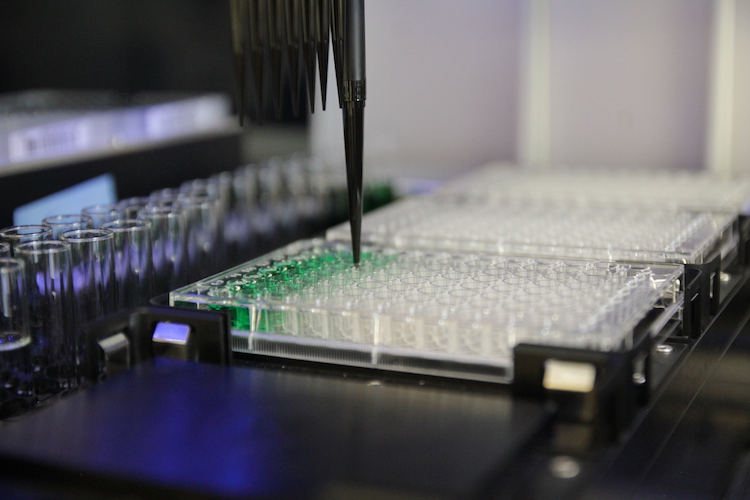An automated method of conducting materials science research can increase productivity by 384 times when compared to a human, according to researchers.
The robot-plus-software system also makes it easier for people who are not expert researchers or scientists to create new materials.
A Rutgers-led team of engineers has developed an automated way to produce polymers, making it much easier to create advanced materials aimed at improving human health.
The team says this innovation is “a critical step” in pushing the limits for researchers who want to explore large libraries of polymers, including plastics and fibers, for chemical and biological applications such as drugs and regenerative medicine through tissue engineering.
While a human researcher may be able to make a few polymers a day, the new automated system – featuring custom software and a liquid-handling robot – can create up to 384 different polymers at once, a huge increase over current methods.
Synthetic polymers are widely used in advanced materials with special properties, and their continued development is crucial to new technologies, according to a study in the journal Advanced Intelligent Systems. Such technologies include diagnostics, medical devices, electronics, sensors, robots and lighting.
Senior author Adam J. Gormley, an assistant professor in the Department of Biomedical Engineering in the School of Engineering at Rutgers University–New Brunswick, says: “Typically, researchers synthesize polymers in highly controlled environments, limiting the development of large libraries of complex materials.
“By automating polymer synthesis and using a robotic platform, it is now possible to rapidly create a multitude of unique materials.”
Robotics has automated many ways to make materials as well as discover and develop drugs.
But synthesizing polymers remains challenging because most chemical reactions are extremely sensitive to oxygen and can’t be done without removing it during production.
The Gormley lab’s open-air robotics platform carries out polymer synthesis reactions that tolerate oxygen.
The group developed custom software that allows a liquid handling robot to interpret polymer designs made on a computer and carry out every step of the chemical reaction.
One benefit is that the new automated system makes it easier for non-experts to create polymers.
The lead author is Matthew Tamasi, a Rutgers doctoral student. Co-authors include doctoral student Shashank Kosuri and undergraduate student Jason DiStefano.
A researcher at the Australian Centre for Nanomedicine and Centre for Advanced Macromolecular Design contributed to the study, which was funded by the New Jersey Health Foundation.

